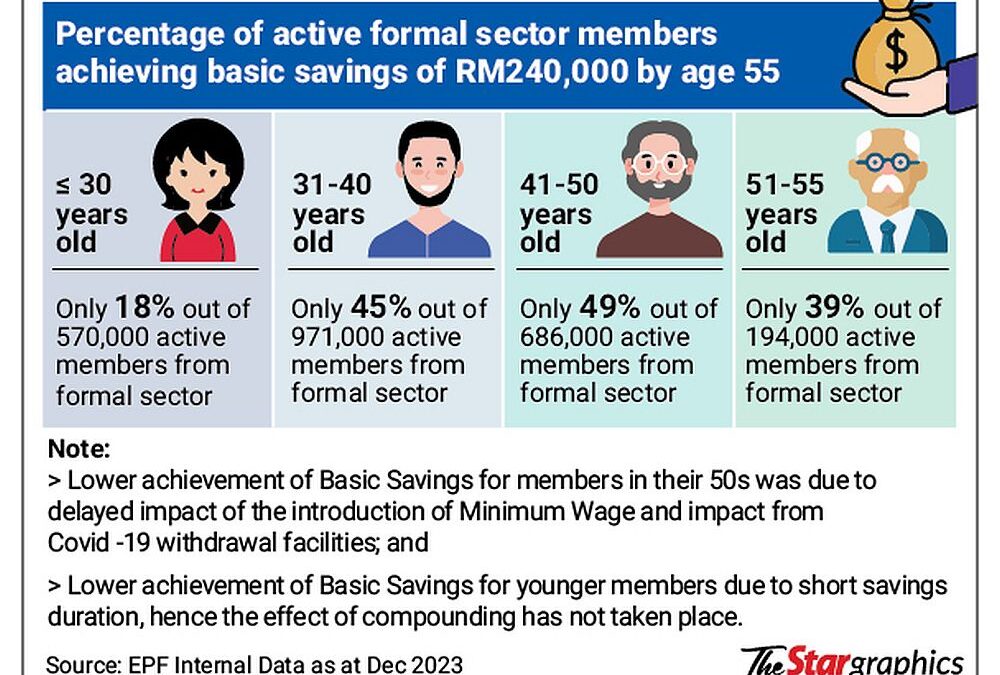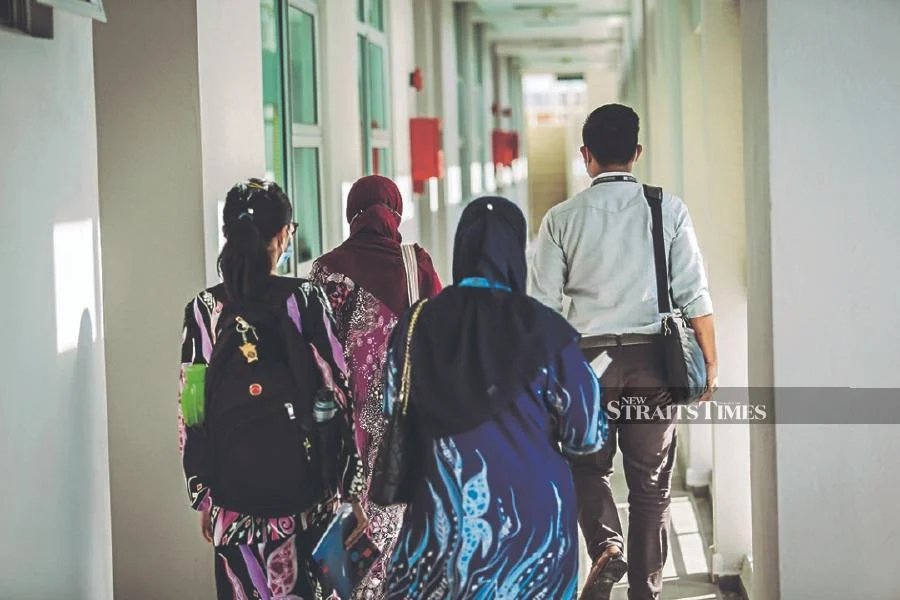
Slashing pensions a brave movebut Malaysia government risks‘political suicide’, say analysts
June 25, 2024SHAH ALAM: Most Malaysians do not have enough savings for their retirement, with only 33% of active Employee Provident Fund (EPF) members having recorded basic savings of RM240,000 as of last year, says the EPF chief executive officer.
Ahmad Zulqarnain Onn said this percentage represented 2.4 million members aged between 18 and 55 in the formal sector.
Basic savings is a pre-determined amount set according to age in Account 1 under EPF to enable members to achieve a minimum savings of RM240,000 by the age of 55.
Ahmad Zulqarnain said the data showed that the number of people aged between 41 and 50 who had achieved their basic savings was higher than those aged between 51 and 55, who are closer to retirement age.
“All this data is telling me that a large portion of the population has inadequate savings for retirement,” he said during the 2024 EPF Financial Review Briefing here yesterday.
He also said that 75% of members who had retired and taken out their savings in a lump sum ran out of money within five years.
“The best thing to do is to withdraw only a portion of your savings instead of taking it all out at once.
“Members can even send instructions to EPF to withdraw their money monthly as opposed to a lump sum,” he said.
This money, he said, should be treated as income replacement during retirement, especially as Malaysia transitions to an ageing nation.
This transition should also be the focus of attention for policy-making as it would have long-term effects on the population, said Ahmad Zulqarnain.
“As we go forward and healthcare gets better, we anticipate Malaysians’ life expectancy will continue to improve to the age of 82 in 2060.
“Malaysians will live longer and will need to take care of themselves throughout those years,” he said, adding that only 42% of the total 24.2 million adults of working age in Malaysia were covered for old age protection.
This made Malaysia’s rate of coverage below the global average of 50%, he said.
“At EPF, we want this to increase to above the global average or strive to be as close to the Organisation for Economic Cooperation and Development’s average rate of 87%.
“This is very important as it provides social security for Malaysians,” he added.
Ahmad Zulqarnain also highlighted the transformation of the working landscape, with more people shifting beyond formal employment, as one of the challenges, referring to a rise in gig workers and self-employment due to the Covid-19 pandemic.
“The nature of work is changing due to technology, the low cost of communications, and lessons that we have learned from the pandemic.
“We anticipate that there will be an increase in different types of jobs going beyond formal employment, including gig jobs, remote working, and independent contractors.
“While this group of people would generate relatively higher income, they would not have old-age protection as they are not covered by any social security,” he said.
He cited research showing that by 2040, 33% of employment in Malaysia was projected to be in the informal category.
This would lead to lower likelihood of old-age income security and financial resilience upon retirement while at the same time, lowering the active formal membership base at EPF.
As at December last year, there were 16.07 million EPF members.
Of this, 8.52 million were active members, representing 50% of Malaysia’s 17.03-million-strong labour force.
Ahmad Zulqarnain said among EPF’s strategic response was to extend coverage for those within and outside the labour force to address the changing work landscape.
This would include coverage for contract and gig workers, self-employed individuals and business owners.
Other measures are introducing contributions beyond the statutory rate through voluntary excess and voluntary contribution programmes, such as i-Sayang and i-Saraan.




